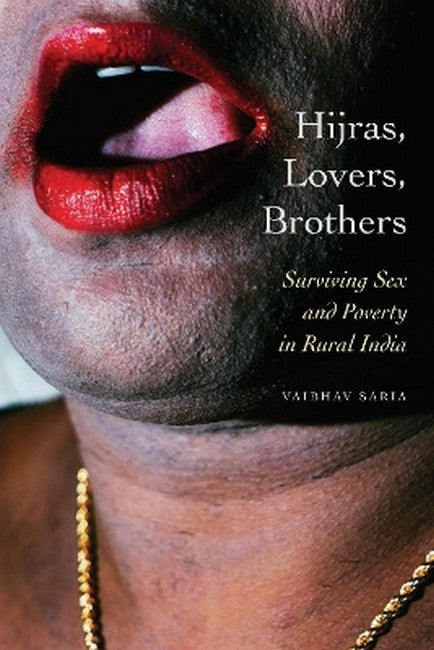Vaibhav Saria is Assistant Professor of Gender, Sexuality, and Women's Studies at Simon Fraser University.
Request Academic Copy
Please copy the ISBN for submitting review copy form
Description
Introduction: That Limpid Liquid within Young Men 1 1 A Prodigious Birth of Love 25 2 In False Brothers, Evil Awakens 62 Interlude: Standing at a Slight Angle to the Universe 100 3 Something Rotten in the State 106 4 Love May Transform Me 140 5 I Have Immortal Longings in Me 179 Acknowledgments 197 Notes 201 References 235 Index 249
A fascinating and unusual book that offers a rich account of trans lives in rural Indian settings, this work will appeal to students and scholars of anthropology, sociology, religious studies, public health, psychology, and social work. It offers a unique take on an understudied group.-- "Choices" Hijras, Lovers, Brothers is a gripping ethnography of hijras and their communities. Saria details the intimate, social, and economic structures that determine how hijras craft their lives, whom and where they love, and the losses they grieve. With startling insights, Saria shows how hijras shape and reshape those very experiences. This book will be a touchstone for Indian anthropology, sexuality studies of the global South, queer studies, international public health, transgender and feminist studies, and the comparative anthropology of kinship. An iconoclastic, vivid and deeply meaningful book.---Chandan Reddy, University of Washington Hijras, Lovers, Brothers offers fresh and important take on a topic that needs exactly that. It contributes not only to the long conversation about the people known, among other labels, as hijras, but to social action, kinship, love, sexuality, pleasure, and trans and queer life. Saria shows how hijras represent a kind of existence that is at once foundation and intervention, a quality of being-among-categories that recurs in South Asian forms of social life and renders unfamiliar globalized critical ideas about how categories work and are worked upon by the social.---Sarah Pinto, Tufts University

